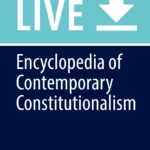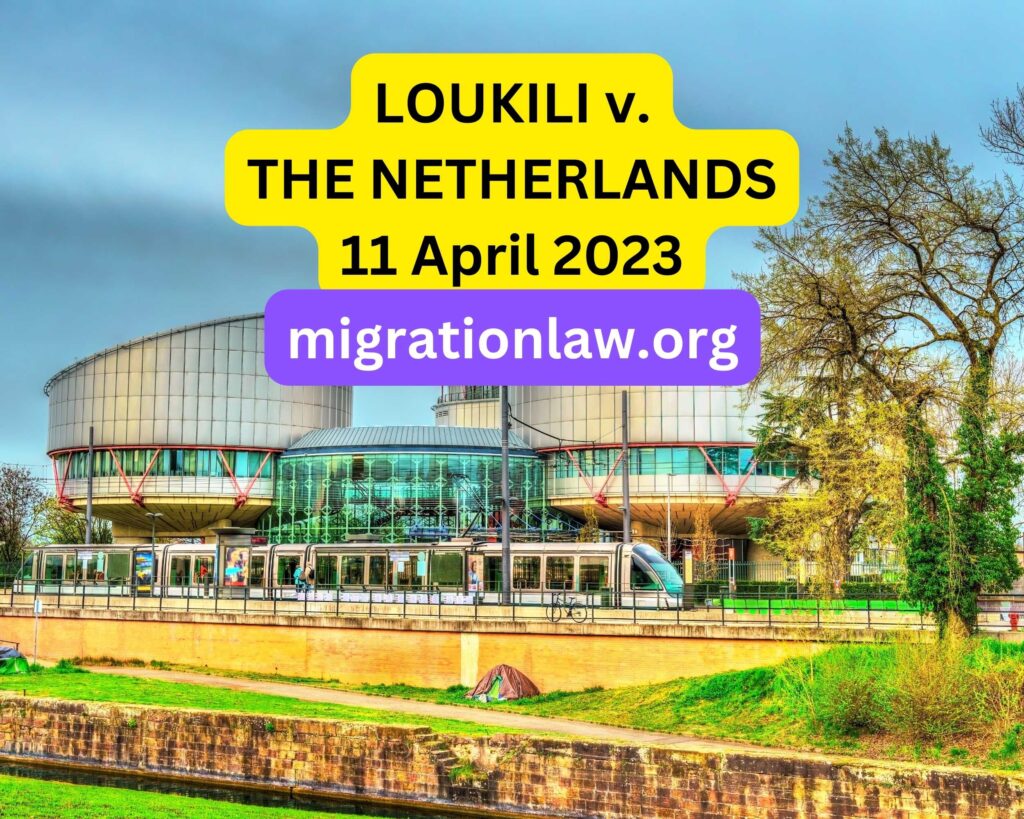On April 11, 2023, the European Court of Human Rights (ECtHR) delivered its judgment in the case of Loukili v. The Netherlands. The case concerned the revocation of a long-term settled migrant’s residence permit and entry ban due to repeated drug-related offenses.
FACTS OF THE CASE
The case involves a Moroccan man who moved to the Netherlands with his family in 1981 and lived there for many years, eventually receiving a residence permit of indefinite duration. However, the man was convicted of drug-related crimes several times, and in 2017, the Dutch government decided to revoke his residence permit, issue a return decision, and impose an entry ban on him for ten years. The man argued that this decision would separate him from his two Dutch-nationality children, as well as his parents and siblings who live in the Netherlands. He submitted written comments and evidence of his employment and relationship with his children, but he waived the opportunity to explain his position further at a hearing.
HOLDING
The applicant’s claim was that the revocation of his residence permit and the imposition of a ten-year entry ban violated his right to respect for family life under Article 8 of the European Convention on Human Rights (ECHR). The applicant argued that he had strong ties to the Netherlands, where he had lived for over 40 years, and that his deportation would have a significant impact on his relationship with his children who lived in the Netherlands with their mother.
The court noted that Mr. Loukili had been convicted of drug-related offenses on multiple occasions, including possession and trafficking of cocaine and heroin. In light of this criminal history, the Dutch authorities had decided to revoke his residence permit and impose a ten-year entry ban.
The ECtHR found that this decision was not arbitrary or disproportionate. The court noted that Mr. Loukili had limited ties to the Netherlands beyond his criminal activities, and that he had sufficient ties with Morocco to build a new life there if necessary.
The court also emphasized that any decision to revoke a residence permit and impose an entry ban must take into account all relevant factors, including the impact on family life. In this case, Mr. Loukili had two minor children who lived with their mother in the Netherlands. However, considering the details of the case the Court concluded that Article 8 of the ECHR does not guarantee absolute protection against expulsion, and a lengthy stay alone is not enough to prevent expulsion.
The court found that there was no proper substantiation of how Mr. Loukili’s relationship with his children would be affected by his expulsion from the country. Overall, the ECtHR found that the Dutch authorities had carefully examined all relevant factors and had acted within their margin of appreciation. The court emphasized that any decision to revoke a residence permit and impose an entry ban must be proportionate and take into account all relevant factors, including the impact on family life.
This judgment is significant because it clarifies the importance of proportionality in cases involving the revocation of residence permits and entry bans. While such measures may be necessary in certain circumstances, they must be carefully considered and take into account all relevant factors, including the impact on family





